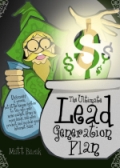SEO FRIENDLY WEB CONTENT
SEO is required for all the websites that are hosted for a serious presence on the net and this means rewriting the simple informative content in a little different manner so as to optimize the content using links, keywords etc.
Any decent content can be optimized, all it needs is intelligent keyword choices and correct links placements.
The content comprises of following:
• Web Copy
• Links
• Tags
• Content arrangement.
Effective web copy:
The copy should be developed with the target audience, products/services offered in mind.
Let’s look at some key ways to write effective web content:
• Write an interesting web copy. It’s a myth that good writing and SEO will not happen together. They can go hand in hand. But first step is a great copy.
• Make sure the content will be of use to somebody and not create the content as well as optimize it. First target your readers and write whatever will benefit them most.
• Some key things to keep in mind while writing such a content are :
• Never use abstract language on your website.
• Be concise in your copy. It pays to be positive and to the point
• Use appropriately placed good links from your content, wherever required.
• Put your self in the readers place to analyze what is written
• Use sub headings, sub topics to tabulate the information systematically. Generally, 400-500 word write-ups are good. For more informative subjects, a use a 1100 words limit.
The content should be oriented towards doing something or taking some action regarding the information you have provided. Vague guess works will achieve nothing.
Right Keywords:
Keywords highlight the important points related to your product/service and should be used with care.
Four steps to optimize the content using the keywords are:
• Selection of keywords
• Density of keywords
• Prominence of the key phrases.
• Variation
Choose only the most related ones and leave aside the unrelated keywords. Analyze the keyword density required. Generally a 2% density should do the trick. Page titles, headings are prominent places to write the keywords. Vary the keywords using the stem Variations, Synonyms and Related words.
Links:
Links are recognized as most effective ways to increase the rankings and hence are an important SEO tool. Try to get links from higher page rank sites. Inbound links bring major traffic to the sites. Try to work on getting as many links as possible. Contact other webmasters to get links from their pages to your site.
Tags:
Meta tags should be added to every page and should be short yet informative in their description. This is important as most search engines will hold the descriptions as such getting them from the Meta Tags.
< name="description" content="put in your description ">
Content Management:
Manage the entire content by placing relevant content at same pages. Also always make sitemap with links to all the pages so that search engines will not have troubles indexing the pages.
All these will help you in creating great website content with proper SEO to get better rankings in various Search Engines.
We respect your email privacy!
Any decent content can be optimized, all it needs is intelligent keyword choices and correct links placements.
The content comprises of following:
• Web Copy
• Links
• Tags
• Content arrangement.
Effective web copy:
The copy should be developed with the target audience, products/services offered in mind.
Let’s look at some key ways to write effective web content:
• Write an interesting web copy. It’s a myth that good writing and SEO will not happen together. They can go hand in hand. But first step is a great copy.
• Make sure the content will be of use to somebody and not create the content as well as optimize it. First target your readers and write whatever will benefit them most.
• Some key things to keep in mind while writing such a content are :
• Never use abstract language on your website.
• Be concise in your copy. It pays to be positive and to the point
• Use appropriately placed good links from your content, wherever required.
• Put your self in the readers place to analyze what is written
• Use sub headings, sub topics to tabulate the information systematically. Generally, 400-500 word write-ups are good. For more informative subjects, a use a 1100 words limit.
The content should be oriented towards doing something or taking some action regarding the information you have provided. Vague guess works will achieve nothing.
Right Keywords:
Keywords highlight the important points related to your product/service and should be used with care.
Four steps to optimize the content using the keywords are:
• Selection of keywords
• Density of keywords
• Prominence of the key phrases.
• Variation
Choose only the most related ones and leave aside the unrelated keywords. Analyze the keyword density required. Generally a 2% density should do the trick. Page titles, headings are prominent places to write the keywords. Vary the keywords using the stem Variations, Synonyms and Related words.
Links:
Links are recognized as most effective ways to increase the rankings and hence are an important SEO tool. Try to get links from higher page rank sites. Inbound links bring major traffic to the sites. Try to work on getting as many links as possible. Contact other webmasters to get links from their pages to your site.
Tags:
Meta tags should be added to every page and should be short yet informative in their description. This is important as most search engines will hold the descriptions as such getting them from the Meta Tags.
< name="description" content="put in your description ">
Content Management:
Manage the entire content by placing relevant content at same pages. Also always make sitemap with links to all the pages so that search engines will not have troubles indexing the pages.
All these will help you in creating great website content with proper SEO to get better rankings in various Search Engines.
We respect your email privacy!





















































































<< Home